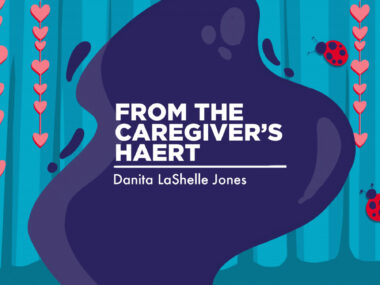I’m Not in the Business of Raising Champions
I don't want my children to follow society's 'win at all costs' messages
Written by |

I was flat-out sick. While I watched my peers wander around the large waiting area, laughing, high-fiving, and waiting patiently for their turn, I was curled up in the corner in my choir dress with a splitting headache and chills.
It was the final solo and ensemble competition of the year. If you were a senior in high school and a choir member, this was your last chance to take part in the statewide competition. The prize? A medal on your choral outfit and bragging rights. That’s it. Now that I’m an adult, it means absolutely nothing, but when I was a 17-year-old high school senior, it meant everything.
The week had started with several trips to my private voice teacher, rehearsals, memorizing music, and anticipating any notes the judges might give for improvement. But by competition day, I felt awful. Yet when they called my name to enter the auditorium to sing my songs, I pulled myself together, held my head high, and gave the performance of my life.
It worked. I received superior ratings in every category and was the only choral student with those prestigious scores from my school. I’d risen to the occasion, excelled at the task, and emerged a champion.
By the time I got home, however, I was running a fever in the low hundreds. The following night, I was a complete wreck as my mother fed me chicken noodle soup.
“Why didn’t you tell us you were sick?” my mom asked a few days later. It was the flu, and I was on day four of recovery.
My answer was simple. I’d worked too hard to miss the competition, and champions push through. Unfortunately, that faulty logic followed me into adulthood.
Champions push through regardless of fatigue, illness, and tragedy. I’d built myself up to believe that it was admirable to forgo my health to follow through on a task. It didn’t help that society encouraged this behavior.
Olympic gymnast Kerri Strug won a gold medal for the U.S. team on a badly sprained ankle. Philadelphia Eagles quarterback Donovan McNabb led his team to victory with a broken ankle. Michael Jordan scored 38 points with the flu during a win that led the Chicago Bulls to the NBA championship. These are the stories that society uses as examples to prove that people should do whatever they need to do to succeed.
Yet it turned out that the U.S. women’s gymnastics team would’ve won the gold without Strug’s final vault. Likewise, the Eagles might have won the game without McNabb’s sacrifice. There are so many other examples that prove that sometimes, the sacrifice isn’t worth it.
When our daughter, whom we lovingly refer to as Ladybug, was diagnosed with hereditary angioedema (HAE), I quickly learned how damaging it could be to encourage “champion” behavior. Ladybug’s flares can make her anxious, her fear of needles can often debilitate her, and her hospital stays can often exhaust her.
Initially, before I understood HAE and the toll it can take on the body, I attempted to get Ladybug to push through. Because she will have this illness for the rest of her life, I wanted her to learn how to move beyond feeling bad. Then one day, after a particularly harrowing episode, I realized something.
When I think about that choral and ensemble competition, I’m not treated to fond memories of singing the songs or hanging out with my friends; I remember how awful I felt and the relief of my bed later that day. All for a medal I can’t find and bragging rights that don’t even matter.
I want Ladybug and our other children to learn that you don’t have to be the champion every time. It’s OK if you don’t win the medal or score the game-winning point. If losing means they walk away with the best memories, feelings, or rest, that makes you the best kind of winner.
Note: Angioedema News is strictly a news and information website about the disease. It does not provide medical advice, diagnosis, or treatment. This content is not intended to be a substitute for professional medical advice, diagnosis, or treatment. Always seek the advice of your physician or other qualified health provider with any questions you may have regarding a medical condition. Never disregard professional medical advice or delay in seeking it because of something you have read on this website. The opinions expressed in this column are not those of Angioedema News or its parent company, Bionews, and are intended to spark discussion about issues pertaining to angioedema.




Leave a comment
Fill in the required fields to post. Your email address will not be published.